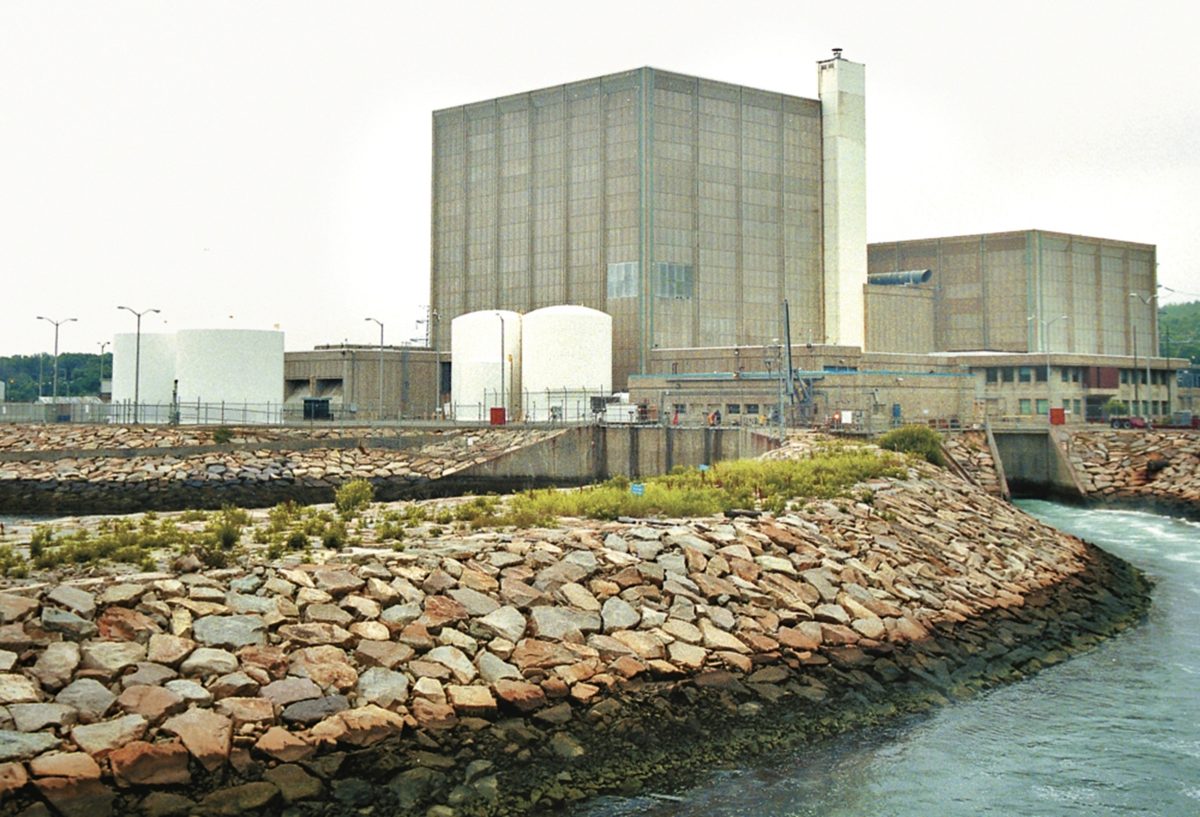The state has denied Holtec Decommissioning International permission to dump up to 1.1 million gallons of treated radioactive wastewater from the former Pilgrim nuclear power station into Cape Cod Bay.
Holtec is decommissioning the Pilgrim plant in Manomet, which stopped generating electricity in 2019. As part of its plan, the New Jersey-based company asked the Massachusetts Department of Environmental Protection for a modification of its permit that would allow it to dump the wastewater.
On Thursday, the DEP rejected that request.
The decision did not come as a surprise. In July 2023, the state rendered a draft ruling against approving the discharge of radioactive wastewater. At the time, Governor Maura Healey reiterated in a statement that she held “serious concerns about Holtec’s proposal to discharge decommissioning wastewater into Cape Cod Bay.”
The DEP said it made the final decision a public hearing and after receiving more than 1,000 comments.
Critics of Holtec – which stands to make many millions of dollars from decommissioning the plant – have long condemned its plans to dump water into Cape Cod Bay. The area is a protected sanctuary under the Massachusetts Ocean Sanctuaries Act, which prohibits the discharge of industrial wastes into protected state waters.
Holtec said Thursday that it is disappointed by the decision.
“Treated water has been discharged within safe limits since the plant began operations in 1972 and today’s denial will continue to delay the decommissioning and economic reuse of the Pilgrim lands,” said Patrick O’Brien, a spokesperson for Holtec, in an email.
David Noyes, senior compliance manager with Holtec, told the state’s Nuclear Decommissioning Citizens Advisory Panel in November that Holtec was pushing the completion date for decommissioning back to 2035 from 2031. The company blamed the delay on deliberations over how to dispose of the wastewater.
“We will continue to evaluate all disposal options for the treated wastewater and the effect this decision has on our timeline to fully decommission the facility,” O’Brien said in his email.
With discharge into the ocean off the table, there are three remaining options for disposing of the treated wastewater.
First is to store it onsite for at least 60 years, or five times the half-life of radioactive tritium in the water, Barry Potvin, chair of the Plymouth Board of Health, said at a Jan. 4 forum.
Second is to ship the water to an offsite processing facility in Texas, which Holtec estimated would cost about $20 million.
The third option is to slowly release the water by evaporation, without pretreatment – through a stack – into the atmosphere. Some evaporation has occurred steadily since the reactor went into operation more than 50 years ago.
It is that third method that has critics most concerned.
“We now look to the state to halt Holtec’s forced evaporation of that same radioactive contaminated wastewater, which is even more dangerous to the public, environment, and is prohibited by the same law,” said Diane Turco, director of the activist group Cape Downwinders.
Cape Downwinders wrote to the DEP in January asking it to stop Holtec from evaporating wastewater. The state has yet to respond.
The water is in the spent fuel pool and the nuclear reactor. How fast it is being evaporated from the plant – and whether it poses a health risk – has long been in dispute.
The next meeting of Plymouth’s Nuclear Decommissioning Citizens Advisory Panel is scheduled for Monday, July 22, at 6:30 p.m., in the Great Hall at Town Hall.
Fred Thys can be reached at fred@plymouthindependent.org.

